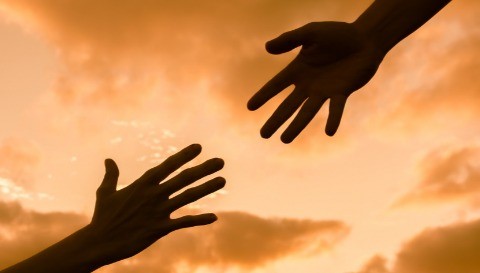Israeli Girl Brought Back to Life

On a sweltering summer day in Israel, my wife and I witnessed a horrible accident. A 14-year-old Israeli girl was hit by a car, thrown into the air, and crashed down on her head.
There is an expression, “Heroes are made, not born.” In my case, years of training as a police chaplain prepared me for this moment. While others froze, I ran to this girl’s side, and after determining that she was not breathing and had no pulse, I started CPR and brought her back to life.
I am not a hero. However, it was not a coincidence that I was in the right place at the right time. King David’s statement, “The footsteps of man are established by God” (Psalms 37:23), teaches that God’s divine providence guides us to events such as this accident. Once we encounter a specific situation, our responsibility is to react and do the right thing.
In my mind, true heroes are those individuals who are willing to put their own lives at risk to save others. One such person was Judah.
In this week’s Torah portion, Vayigash (Genesis 44:18-47:27), Benjamin, is held captive by the Egyptian ruler who was second-in-command to Pharaoh. At significant risk to his own life, Judah, who was unaware that the second-in-command was Joseph, forcefully demands the release of his brother Benjamin.
Judah’s actions demonstrate that he understood the importance of saving a life. This mitzvah is so fundamental to Jews and Judaism our sages said, “Whoever saves a life is as if they saved an entire world” (Sanhedrin 37a).
Judah not only secured Benjamin’s release, but he also reunited the family of Jacob and saved the entire Jewish people, thereby allowing them to develop into a nation with a unique moral and spiritual mission.
Heroes do not expect rewards. However, individuals who take selfless risks receive a reward they never expected. I believe Judah’s reward was a spiritual insight he received from Joseph.
Once Joseph identifies himself to his brothers, they are terrified that he will seek retribution for selling him into slavery. However, Joseph reassures them by proclaiming, “Do not be distressed or angry with yourselves because you sold me here, for God sent me before you to preserve life” (Genesis 45:5).
By pointing out that it was God Who had orchestrated his descent to Egypt, Joseph was proclaiming the Jewish belief in Divine Providence. Ultimately, everything is for the good, even if it is not apparent.
The word “coincidence” is not part of the Jewish spiritual vernacular. We believe God is intimately involved in everything we experience. We need only to see through the world’s materialism and recognize that there is a higher power.
I have experienced many events I consider to be Divine Providence. These life-changing encounters provide me a strong response when missionaries challenge my faith and ask me if I have a “personal relationship with God.” To their surprise, I immediately tell them I do.
What could be more personal than to experience how God is interacting with us? First, God leads us to specific situations and then we have the responsibility to make good choices and make the world better.
May this Shabbos provide opportunities to experience a more personal and meaningful relationship with God.
Shabbat Shalom,
Rabbi Bentzion Kravitz
© 2022 Jews for Judaism • P.O. Box 351235, Los Angeles, CA 90035 • 310-556-3344
info@JewsforJudaism.org • www.jewsforjudaism.org/donate • www.SMARTalks.com
 Israeli Girl Brought Back to Life
Israeli Girl Brought Back to Life